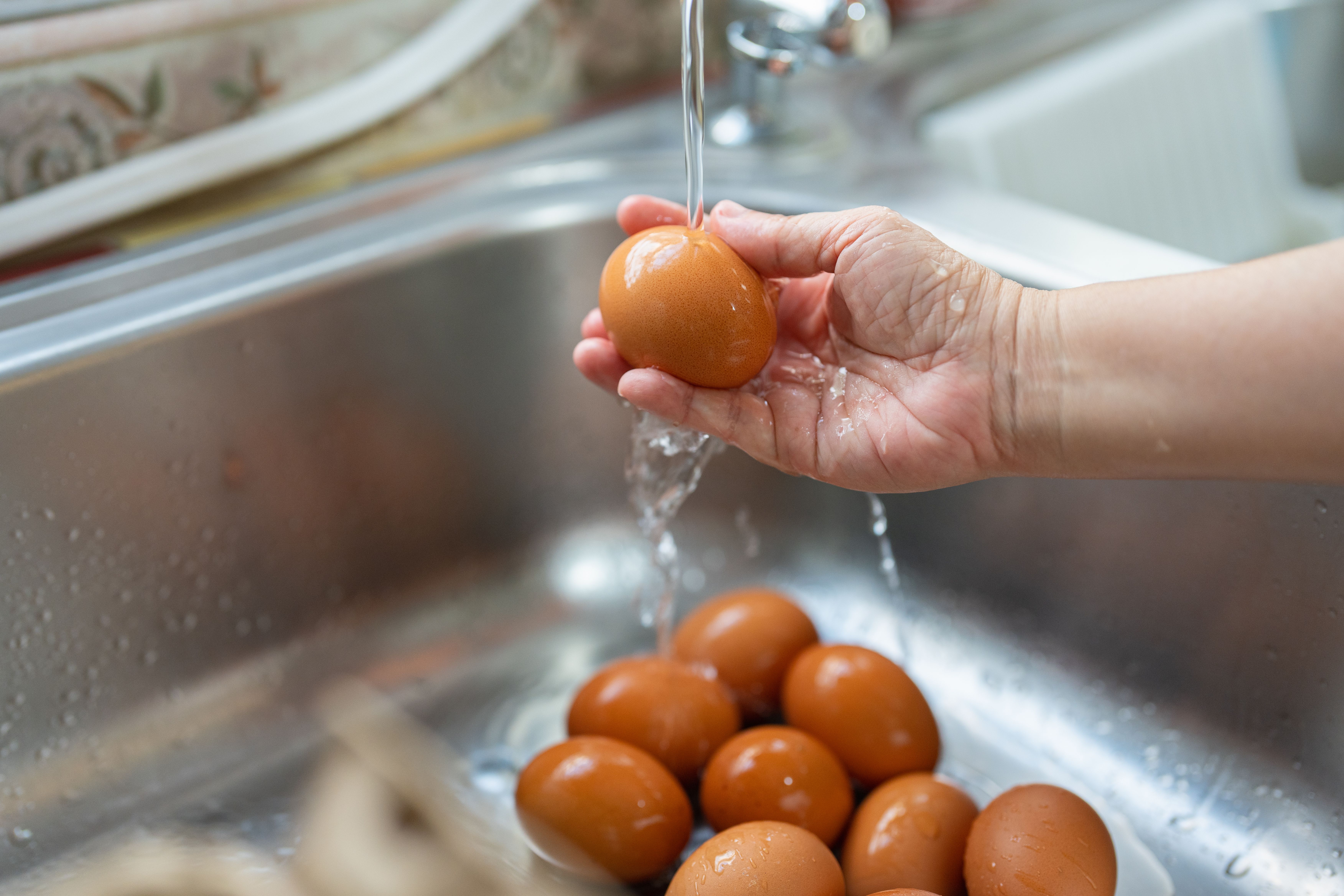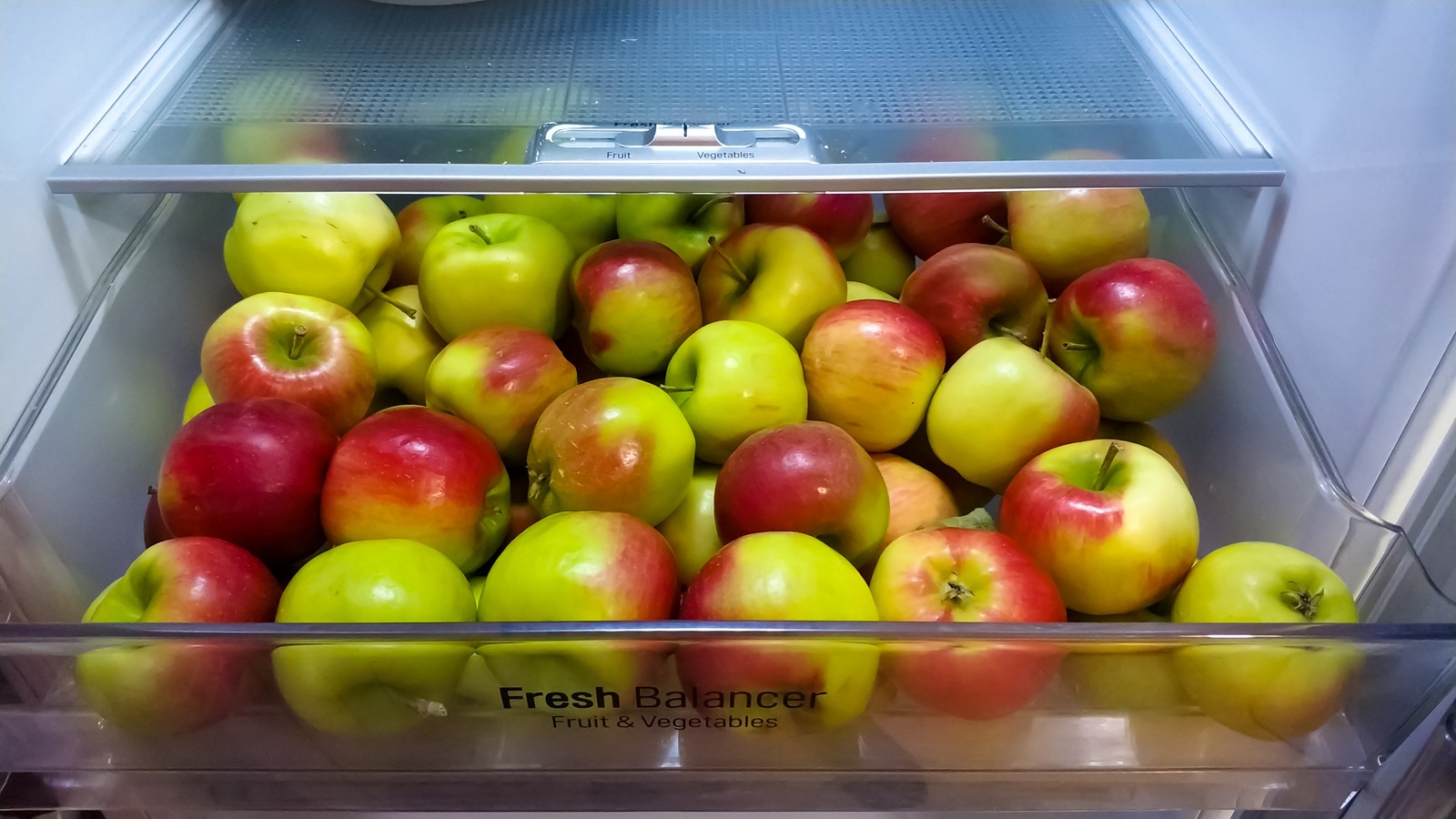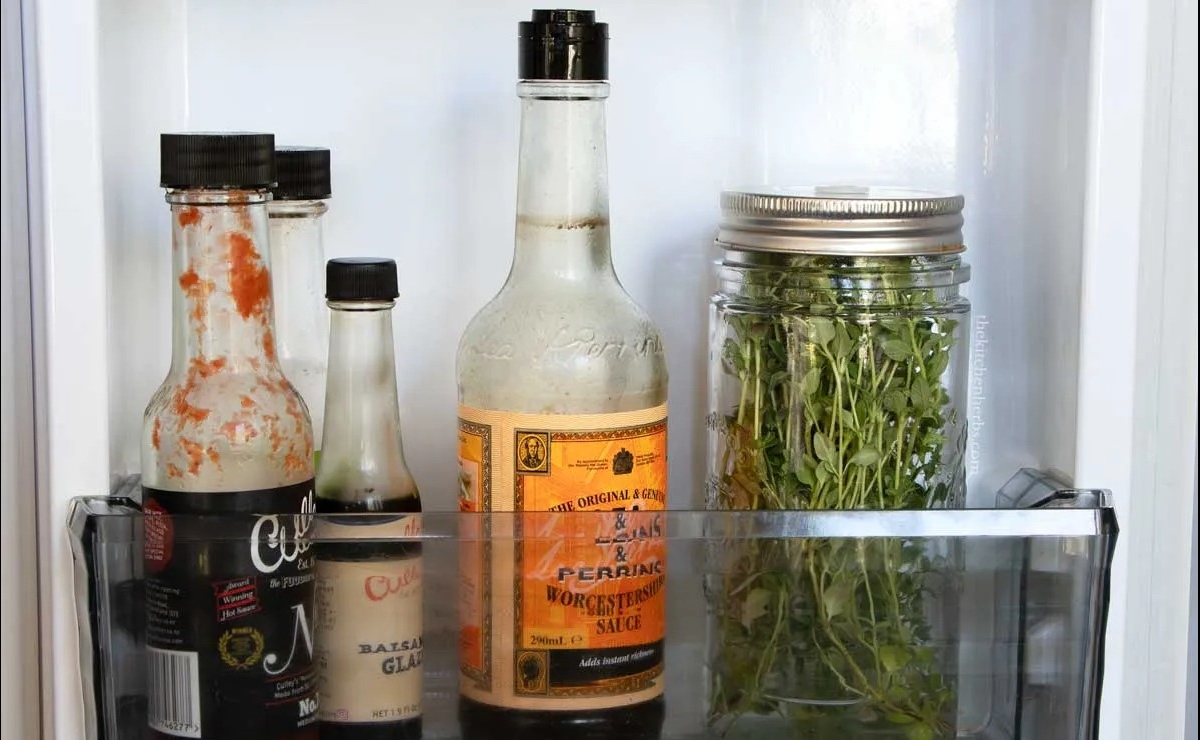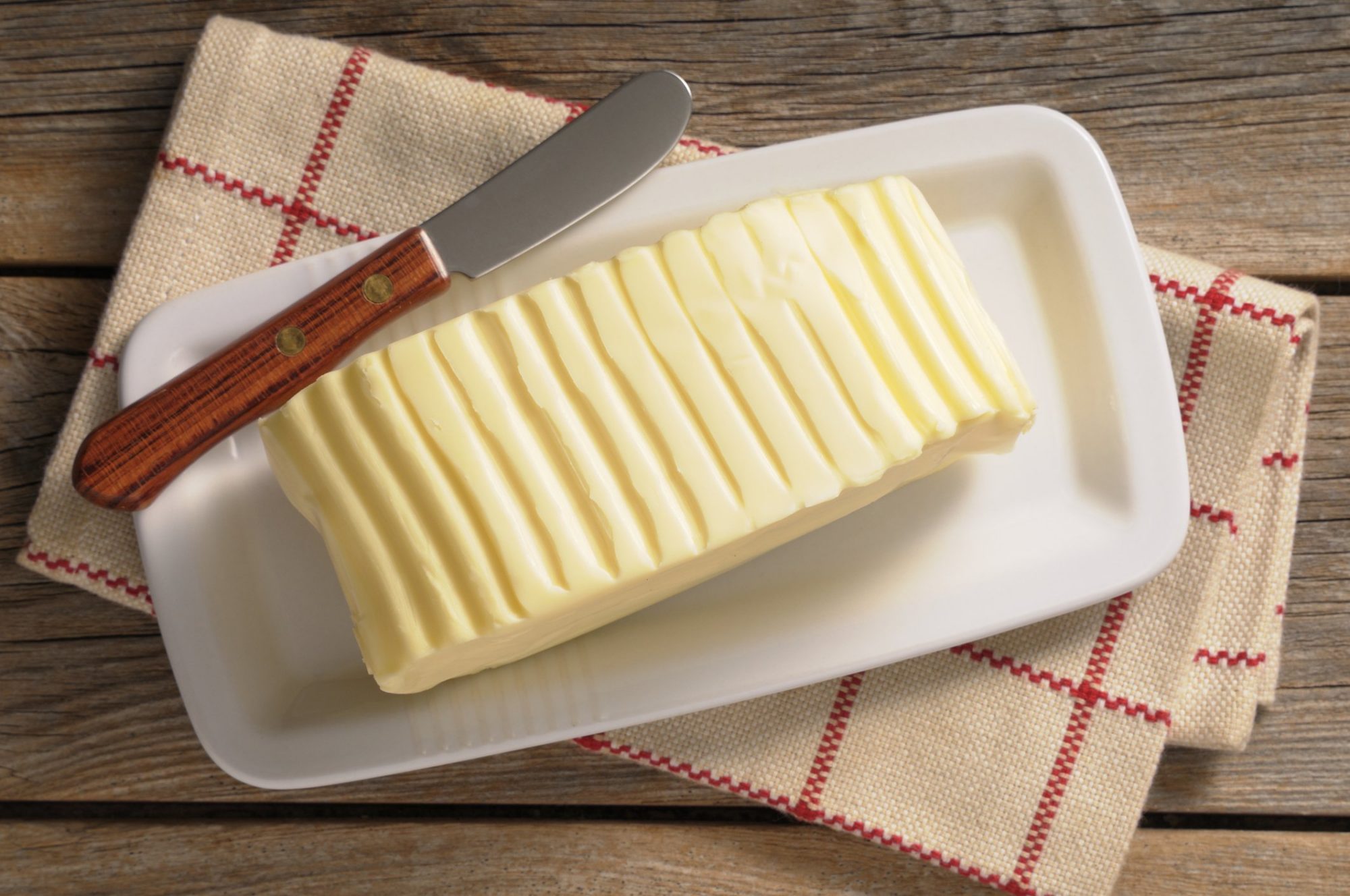Home>Articles>How Long Do Fresh Washed Eggs Last In The Refrigerator


Articles
How Long Do Fresh Washed Eggs Last In The Refrigerator
Modified: October 18, 2024
Discover how long fresh washed eggs can last in the refrigerator. Read our informative articles on egg storage and keep your eggs fresh for longer.
(Many of the links in this article redirect to a specific reviewed product. Your purchase of these products through affiliate links helps to generate commission for Storables.com, at no extra cost. Learn more)
Introduction
When it comes to staple foods, eggs are a versatile and nutritious option enjoyed by people all over the world. Whether you prefer them scrambled, poached, or sunny-side up, eggs are a delicious addition to any meal. But have you ever wondered how long those fresh eggs will last in the refrigerator?
The shelf life of eggs can vary depending on a variety of factors, such as storage conditions and whether or not they have been washed. In this article, we will focus specifically on fresh washed eggs and their lifespan in the refrigerator. We will explore the key factors that affect egg freshness, the importance of washing eggs, proper storage techniques, and more.
So, if you’re ready to dive into the world of eggs and discover how to make the most of your fresh washed eggs, keep reading to learn all you need to know.
Key Takeaways:
- Properly washed and stored fresh eggs can last 4 to 5 weeks in the refrigerator, maintaining their quality and safety. Remember to use the freshest eggs and cook them thoroughly for optimal freshness.
- Washing eggs removes contaminants and ensures food safety, but proper handling and storage are crucial for maintaining freshness. Follow guidelines for refrigeration, positioning, and separation to maximize egg quality.
Factors Affecting Egg Freshness
Several factors can impact the freshness of eggs, including their age, handling, and storage conditions. Let’s take a closer look at some of the key factors that affect egg freshness:
Egg Age:
The age of an egg plays a significant role in determining its freshness. Freshly laid eggs have a tighter egg white and a rounded yolk, which indicates that they are still at their peak quality. As eggs age, their egg white becomes thinner, and the yolk flattens. This change in texture can affect the taste and cooking properties of the eggs.
Handling:
The way eggs are handled during collection, transportation, and storage can impact their freshness. Eggs should be handled gently to avoid cracking, as cracks can allow bacteria to enter the egg and expedite spoilage. Rough handling can also lead to changes in the structural integrity of the egg, affecting its freshness and quality.
Temperature:
The temperature at which eggs are stored can greatly influence their freshness. Eggs should be kept refrigerated at a temperature between 35 to 40 degrees Fahrenheit (1 to 4 degrees Celsius) to slow down the growth of bacteria. If eggs are exposed to higher temperatures, such as being left out on the countertop, they can spoil more quickly.
Washing:
Washing eggs is a common practice to remove dirt, debris, and potential bacteria from the shell’s surface. However, washing eggs can also affect their freshness. The protective cuticle or bloom, a natural coating on the shell, gets removed during the washing process. This cuticle helps to seal the pores in the shell, preventing bacteria and moisture from entering the egg. Once the cuticle is removed, the egg becomes more susceptible to contamination and spoilage.
Now that we have a better understanding of the factors that impact egg freshness, let’s explore the importance of washing eggs.
The Importance of Washing Eggs
Washing eggs is an important step in the egg production process. It helps to remove dirt, bacteria, and potential contaminants from the surface of the eggshell, making them safe for consumption. Here are some key reasons why washing eggs is crucial:
Food Safety:
Eggs can come into contact with various substances during the laying and collection process, such as dirt, feathers, and bacteria. Washing eggs helps to eliminate these potential sources of contamination, reducing the risk of foodborne illnesses. The removal of bacteria and debris from the shell’s surface is particularly essential for eggs that will be consumed raw or undercooked, such as in recipes like homemade mayonnaise or eggnog.
Improved Egg Appearance:
Aesthetics also play a role in the egg washing process. Clean and visually appealing eggs are more desirable to consumers, whether they are buying them at the grocery store or directly from a local farm. Washing eggs helps to remove any unsightly dirt or stains, enhancing their appearance and making them more appealing to the eye.
Read more: How Long Do Eggs Last In The Freezer
Extended Shelf Life:
By washing eggs, you can potentially extend their shelf life. As mentioned earlier, the protective cuticle or bloom on the eggshell helps to keep bacteria and moisture out. However, if the eggs are heavily soiled, this natural protective layer can become compromised. Washing the eggs gently removes the dirt and debris, ensuring that the cuticle remains intact and the eggs stay fresher for longer.
Regulatory Compliance:
In many countries, egg producers are required by law to wash eggs. This is to ensure that eggs meet certain cleanliness standards and adhere to food safety regulations. By washing eggs, producers can demonstrate compliance with these regulations and provide consumers with safer, higher quality eggs.
While washing eggs is essential, it’s crucial to do it properly. Improper washing techniques, such as using water that is too hot or scrubbing the eggs too vigorously, can damage the protective cuticle and increase the risk of contamination. Using a mild detergent specifically designed for egg washing and gently rinsing the eggs under running water is the recommended approach.
Now that we understand the importance of washing eggs, let’s explore how to store freshly washed eggs in the refrigerator to maximize their freshness.
Storing Washed Eggs in the Refrigerator
Once eggs have been washed, it’s crucial to store them properly in the refrigerator to maintain their freshness and quality. Here are some key guidelines for storing freshly washed eggs:
Refrigeration:
Washed eggs should be refrigerated as soon as possible. The refrigerator provides a controlled, cool environment that helps to slow down the growth of bacteria and maintain the quality of the eggs. Ideally, the temperature should be between 35 to 40 degrees Fahrenheit (1 to 4 degrees Celsius).
Storage Container:
Use a clean and dry storage container for your washed eggs. It’s recommended to store them in their original carton or use a specifically designed egg storage container. These containers help to protect the eggs from absorbing strong odors from other foods in the refrigerator and minimize the risk of damage.
Positioning:
Store the eggs with the pointed end down. This helps to keep the air cell, located at the rounded end of the egg, intact and centered, which is important for maintaining freshness. Storing them with the pointed end down also helps to prevent the yolk from moving around and potentially breaking.
Avoiding Temperature Fluctuations:
Avoid placing the eggs in areas of the refrigerator that are prone to temperature fluctuations. Keep them away from the door, as it can experience frequent temperature changes due to opening and closing. Instead, place the eggs on a shelf towards the back of the refrigerator, where the temperature is more stable.
Separation:
It’s best to store your eggs separate from other foods in the refrigerator. This helps to prevent cross-contamination and maintains the integrity of the eggs. If possible, use a designated compartment or drawer specifically for egg storage.
By following these guidelines, you can ensure that your freshly washed eggs stay fresh and safe to consume for a longer period of time. However, it’s important to note that even with proper storage, eggs do have a limited shelf life.
In the next section, we will explore the typical shelf life of fresh washed eggs in the refrigerator.
Read more: How Long Do Eggs Keep In The Refrigerator
Shelf Life of Fresh Washed Eggs
The shelf life of fresh washed eggs can vary depending on multiple factors, including the freshness of the eggs before washing, storage conditions, and handling practices. On average, freshly washed eggs can last for about 4 to 5 weeks when stored correctly in the refrigerator.
It’s important to note that the freshness of the eggs before washing can impact their shelf life. Eggs that are collected and washed shortly after being laid will generally have a longer shelf life compared to older eggs. Therefore, it’s ideal to use the eggs as soon as possible or within a few weeks for optimal freshness.
Proper storage and handling are also crucial for extending the shelf life of fresh washed eggs. As mentioned earlier, storing the eggs in the refrigerator between 35 to 40 degrees Fahrenheit (1 to 4 degrees Celsius) helps to slow down bacterial growth and maintain quality. Additionally, keeping the eggs in their original carton or a designated storage container, with the pointed end down, can also contribute to their longevity.
It’s important to remember that as eggs age, their quality may gradually deteriorate. So, while washed eggs may still be safe to consume within the 4 to 5 week period, their taste, texture, and cooking properties may not be as desirable as when they were freshly laid. Therefore, it’s always recommended to check the freshness of the eggs before use by performing a simple floating test. If an egg floats in a bowl of water, it is likely no longer fresh and should be discarded.
Furthermore, it’s essential to follow proper food safety practices when using washed eggs. This includes cooking eggs thoroughly, especially when using them in recipes that call for raw or undercooked eggs, such as in homemade sauces or desserts. By fully cooking eggs, any potential bacteria are eliminated, ensuring safe consumption.
Now that we understand the shelf life of freshly washed eggs, let’s delve into some essential handling and storage tips to ensure their maximum freshness.
Proper Handling and Storage Tips
To ensure the maximum freshness and safety of your fresh washed eggs, it’s important to follow proper handling and storage practices. Here are some essential tips to keep in mind:
Store in the Refrigerator:
Always store freshly washed eggs in the refrigerator. The consistent cool temperature helps to slow down bacterial growth and maintain the quality of the eggs. Avoid leaving them at room temperature, as this can speed up spoilage.
Use Fresh Eggs:
Whenever possible, use the freshest eggs available. The freshness of the eggs before washing can impact their overall shelf life. If you have your own chickens or have access to local farms, acquiring fresh eggs directly from the source is ideal.
Proper Washing Technique:
When washing eggs, use water that is warmer than the egg’s temperature but not too hot. Gently rub the eggs with a mild detergent specifically designed for egg washing. Rinse them under running water and avoid using excessive force, as this can damage the protective cuticle.
Check for Cracks:
Before storing washed eggs, check for any cracks in the shell. Cracks can allow bacteria to enter the egg and compromise its freshness. If you find any cracked eggs, it’s best to use them immediately rather than storing them.
Separate from Strong Odors:
Avoid storing eggs near foods with strong odors, as the eggs can absorb these odors. It’s best to keep them in their original carton or use a designated egg storage container to protect them from other aromas in the refrigerator.
Cook Thoroughly:
When using fresh washed eggs, ensure they are thoroughly cooked, especially in recipes that require raw or undercooked eggs. Cooking eggs eliminates any potential bacteria, making them safe to consume.
By following these proper handling and storage tips, you can maintain the maximum freshness and quality of your fresh washed eggs. Now, let’s address some common questions and concerns related to fresh washed eggs.
Common Questions about Fresh Washed Eggs
As we explore the world of fresh washed eggs, it’s natural to have questions. Here are some common questions and concerns that people often have:
1. Is it necessary to wash eggs?
Washing eggs is essential for removing dirt, debris, and potential contaminants from the surface of the eggshell. It helps to ensure food safety and maintain the freshness of the eggs. However, if you acquire eggs from a trusted source where they are already cleaned and properly handled, washing may not be necessary.
2. Can I keep unwashed eggs in the refrigerator?
Unwashed eggs have a natural protective coating called the cuticle or bloom, which helps to seal the pores and protect against contamination. If the eggs are clean and have not been exposed to potential contaminants, storing unwashed eggs at room temperature in a cool and dry place is suitable. However, it’s generally recommended to refrigerate all eggs for optimal freshness and safety.
3. Can I wash eggs with soap or detergent?
Eggs should be washed with a mild detergent specifically designed for egg washing. Avoid using soap or other household cleaning agents, as they can leave residue on the eggshell that may affect the taste and quality of the eggs.
Read more: How Long Do Carrots Last In The Refrigerator
4. How can I tell if my washed eggs are still fresh?
To determine the freshness of washed eggs, you can use the floating test. Fill a bowl with water and gently place the egg in it. If the egg sinks to the bottom and lies flat on its side, it is fresh. If it stands upright or floats, it is no longer fresh and should be discarded.
5. Can I freeze washed eggs?
While it’s possible to freeze eggs, it’s not recommended to freeze them in their shells after they have been washed. Freezing eggs without removing the shells can cause the shell to crack and make the eggs susceptible to contamination. If you want to freeze eggs, it’s best to crack them into a container, gently whisk them, and then freeze the whisked mixture.
6. How long can I keep hard-boiled washed eggs in the refrigerator?
Hard-boiled eggs, whether washed or not, can be kept in the refrigerator for up to one week. It’s important to store them in a covered container to prevent any odors from affecting their flavor.
These common questions and answers should address some of the uncertainties surrounding fresh washed eggs. Now, let’s summarize what we’ve learned.
Conclusion
Understanding the factors that affect the freshness of eggs and knowing how to properly handle and store fresh washed eggs is crucial for maintaining their quality and safety. By following the guidelines discussed in this article, you can make the most out of your fresh washed eggs and enjoy them for an extended period of time.
Washing eggs plays a key role in removing potential contaminants and ensuring food safety. However, it’s important to be mindful of proper washing techniques to avoid damaging the protective cuticle. Storing freshly washed eggs in the refrigerator at the correct temperature, in a designated container, and with the pointed end down helps to maintain their freshness.
Remember that fresh washed eggs have a shelf life of approximately 4 to 5 weeks when stored properly. While they may still be safe to consume after this period, their taste and quality may decline. To ensure maximum freshness, it’s important to use the freshest eggs available and thoroughly cook them, especially when using them in recipes that call for raw or undercooked eggs.
Lastly, addressing common questions and concerns about fresh washed eggs helps to alleviate any doubts or confusion. Whether it’s understanding the necessity of washing eggs, determining egg freshness through the floating test, or knowing the limitations of freezing washed eggs, gaining clarity on these matters ensures a better experience with fresh washed eggs.
So, the next time you open your refrigerator and reach for those delicious fresh washed eggs, you can do so with confidence, knowing that you have the knowledge to handle and store them properly. Enjoy the versatility and nutritional benefits that fresh eggs bring to your meals, and savor each moment as you indulge in their goodness.
Curious about keeping your eggs fresh even longer? Once you've mastered the basics of egg storage from our current read, why not dive deeper with our upcoming feature on innovative egg storage solutions? This next article is packed with insights on the latest and greatest ways to store your eggs, ensuring they stay fresh and tasty well into 2024. Don't miss out on discovering top egg storage methods that could revolutionize your kitchen routine!
Frequently Asked Questions about How Long Do Fresh Washed Eggs Last In The Refrigerator
Was this page helpful?
At Storables.com, we guarantee accurate and reliable information. Our content, validated by Expert Board Contributors, is crafted following stringent Editorial Policies. We're committed to providing you with well-researched, expert-backed insights for all your informational needs.









0 thoughts on “How Long Do Fresh Washed Eggs Last In The Refrigerator”